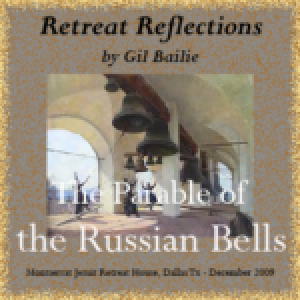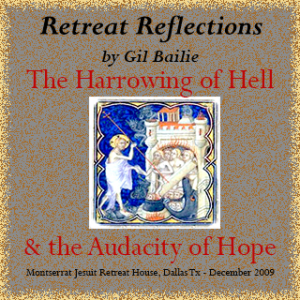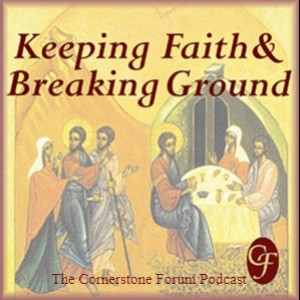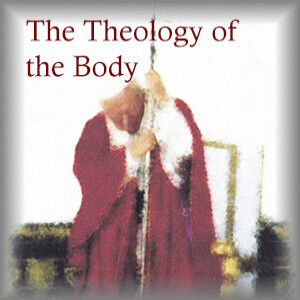Episodes

Sunday Sep 19, 2021

Saturday Sep 18, 2021

Friday Sep 17, 2021

Thursday Sep 16, 2021
Thursday Sep 16, 2021
Reflections on human origins vis a vis nuptiality - from homo sapiens to human culture via mimesis.

Wednesday Sep 15, 2021
Wednesday Sep 15, 2021
An expanded version of Gil Bailie’s presentation at the 2009 Colloquium on Violence and Religion conference at St. Mary’s University, London.
Unlike the generation that sacrificed so much to preserve our civilization, many of us have lately come to believe that we can discharge our present responsibilities simply by relaxing the religious, moral, social and cultural traditions that have defined our culture, relieving our children of the burden of having exemplary models to emulate and ennobling standards to which to aspire, and taking special care not to inconvenience newcomers to our societies with any serious need to familiarize themselves with these traditions. This minimalist approach to cultural responsibility is a striking example of what G. K. Chesterton called Christian virtue gone mad. Contrary to its purported intent, it has resulted in a generation or two of people who feel entitled to the blessings Western Civilization is still able to bestow but who no longer identify with that civilization in any really serious way, many of whom, in fact, have been inculcated with a contempt for it.

Tuesday Sep 14, 2021
Tuesday Sep 14, 2021
This is a three part presentation made in 2003 at Casper, Wyoming introducing the participants to Pope St. John Paul II's Theology of the Body.

Monday Sep 13, 2021
Monday Sep 13, 2021
This is a three part presentation made in 2003 at Casper, Wyoming introducing the participants to Pope St. John Paul II's Theology of the Body.

Sunday Sep 12, 2021
Sunday Sep 12, 2021
This is a three part presentation made in 2003 at Casper, Wyoming introducing the participants to Pope St. John Paul II's Theology of the Body.

Thursday Sep 09, 2021
Thursday Sep 09, 2021
St. Paul's writings comprise a large part of the New Testament. The Letter to the Romans is considered the most central and comprehensive of all of his writing. He was the most dynamic and peripatetic of all of the first interpreters of the Christian message. Whereas the Gospel writers were careful to relate theological meanings to the detailed events of the life of Jesus and his sayings, Paul took the opposite approach. He extracted the theological meaning of the life, death, and resurrection of Jesus and elaborated it into the foundational understanding of the Christian experience not only of the first century A.D. but for every Christian since then.

Wednesday Sep 08, 2021
Wednesday Sep 08, 2021
St. Paul's writings comprise a large part of the New Testament. The Letter to the Romans is considered the most central and comprehensive of all of his writing. He was the most dynamic and peripatetic of all of the first interpreters of the Christian message. Whereas the Gospel writers were careful to relate theological meanings to the detailed events of the life of Jesus and his sayings, Paul took the opposite approach. He extracted the theological meaning of the life, death, and resurrection of Jesus and elaborated it into the foundational understanding of the Christian experience not only of the first century A.D. but for every Christian since then.

Keeping Faith & Breaking Ground
Without Christianity neither the nature of the present crisis of culture nor the meaning of history itself can be properly comprehended. If the Christian revelation is to come to our aid in this moment of peril, we must learn to account for its sweeping claims in ways that are faithful to Church teachings, intellectually cogent, morally rigorous, charitable, anthropologically sound, and undeterred by the moribund spirit of our age.



